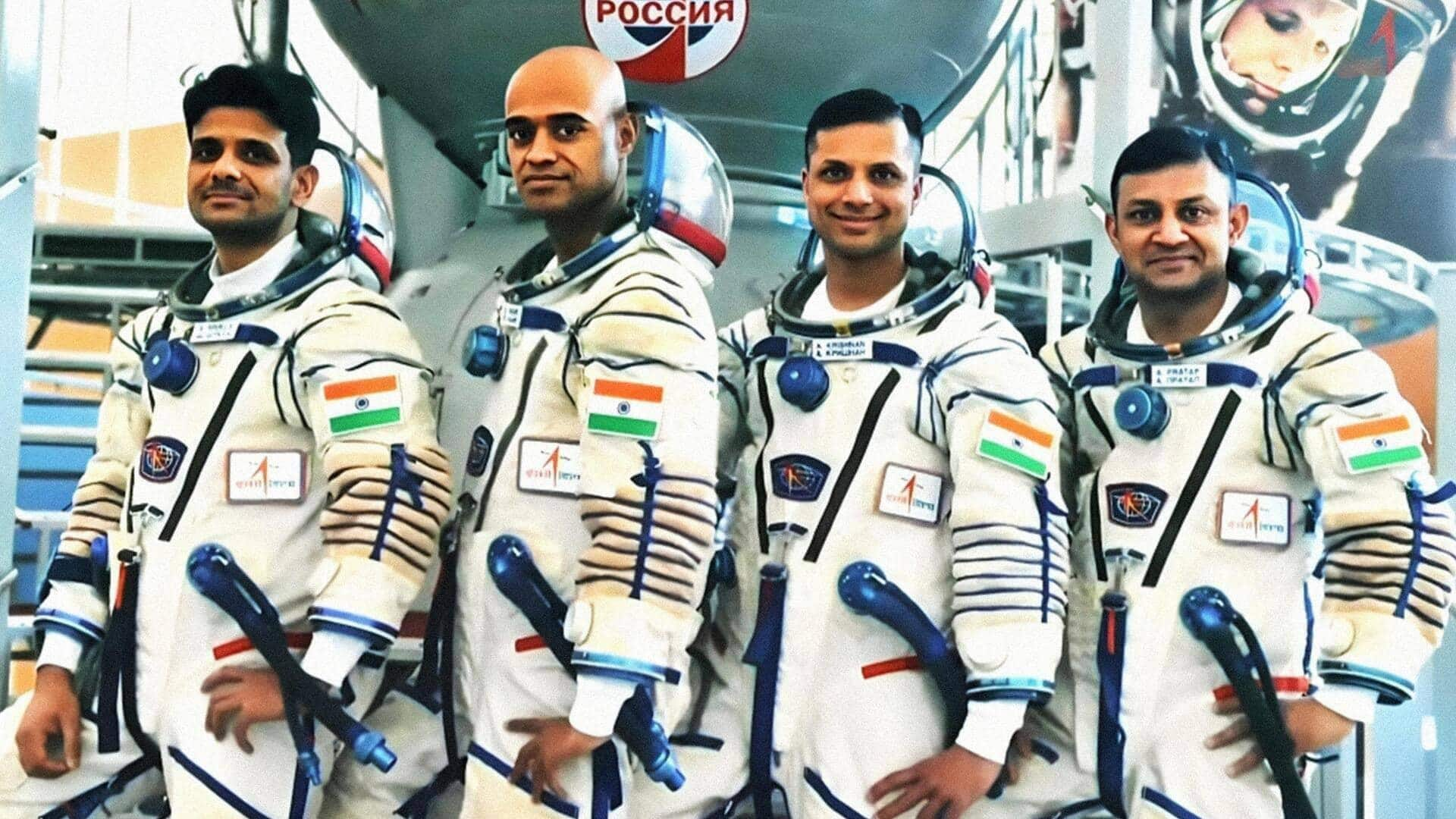
Gaganyaan: India's first human spaceflight mission to launch by year-end
What's the story
The Indian Space Research Organisation (ISRO) is gearing up for the launch of Gaganyaan, India's first human space flight program.
ISRO Chairman S Somanath announced on Friday that the organization is aiming to launch Gaganyaan by the end of this year.
The announcement was made during his visit to the Space Expo in Bengaluru, Karnataka.
Mission details
Gaganyaan's mission and future prospects
The Gaganyaan program, approved in December 2018, aims to send humans into Low Earth Orbit (LEO) and lay the groundwork for future Indian human space exploration.
The Union Cabinet has recently expanded the scope of this program by approving the construction of the first unit of Bharatiya Anatriksh Station, India's own space station.
This development signifies India's growing ambitions in space exploration and research.
Meet the vyomnauts
Gaganyaan mission will see four vyomnauts travel to space
In February this year, Prime Minister Narendra Modi announced the names of the four vyomnauts (astronauts) chosen for the Gaganyaan mission.
The team includes Group Captain Prashanth Balakrishnan Nair, Wing Commander Shubanshu Shukla, Group Captain Angad Prathap, and Group Captain Ajit Krishnan of the Indian Air Force (IAF).
All of them have extensive test pilot experience.
Lunar exploration
ISRO's Chandrayaan-4 mission receives Cabinet approval
In addition to the Gaganyaan update, Somanath also shared information about ISRO's upcoming lunar mission, Chandrayaan-4.
He revealed that the engineering for this mission has been completed and it has received approval from the Cabinet.
The Chandrayaan-4 mission aims to land on the Moon, collect samples, and return them to Earth for analysis. This marks another significant step in India's space exploration endeavors.
Mission intricacies
Chandrayaan-4 mission's complexity and launch challenges
Somanath highlighted the complexities of the Chandrayaan-4 mission, stating that it involves returning from the Moon which is equivalent to an additional mission.
This increases the overall size of the satellite and number of modules, necessitating two launches due to current launch capabilities.
Despite these challenges, ISRO is committed to advancing India's presence in space exploration through this ambitious lunar mission.